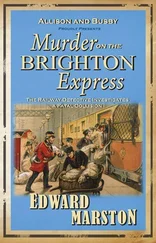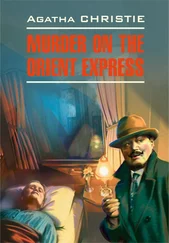No, there was something odd about the whole thing – what with no leading part for Cattermole, a too ambitious playbill, and the very idea Gerald Hennessy would think of treading the Pavilion’s creaky boards. It must be something else.
But what? Without realising it, Miss Dimont was rapidly coming to the conclusion that if there had been foul play in Temple Regis’s two celebrated deaths it must be to do with the actor, not the detestable Shrimsley.
Back in the office there was a rare daytime sighting of Athene Madrigale. ‘Busy, dear?’ she asked Miss Dimont indulgently.
‘Well yes,’ came the reply. ‘What are you doing here, though? This isn’t your time of day, Athene. It’s Monday morning – you’re a creature of the night!’
‘I felt moved, dear. The spirit awakened within, and I knew I had to give my all to the stars this morning.
‘Also,’ she added, as if imparting a great secret, ‘I needed to do some shopping.’
Athene made the tea while Miss Dimont found Terry to tell him about the impending arrival of Prudence Aubrey. As her cup cooled, reporter consulted astrologer.
‘So you see, Gerald Hennessy – Raymond Cattermole – Alma Cogan,’ she summed up neatly.
‘Yes, I do see,’ said Athene. She paused. ‘Did you know that Gerald and Mr Cattermole were both in a West End play together? Before the War?’
‘How interesting.’ It wasn’t particularly, actors being actors, but the tea wasn’t cool enough to drink yet.
‘Yes, The Importance of Being Earnest . I saw it myself, at the Globe Theatre – Edith Evans, oh! And Margaret Rutherford too!
‘What was interesting is that Raymond was playing Jack, and Gerald, Algernon, then after the first few performances they were switched round so Gerald took the lead part. And wonderful he was! I never cared for that Raymond Cattermole,’ added Athene.
‘So they both had to learn another part?’
‘Yes, and I remember an interview Mr Cattermole gave which said some quite unkind things about Gerald. Quite unusual in those days – created something of a stir. I mean, people in the theatre just don’t talk like that, do they, saying nasty things?’
‘So,’ said Miss Dimont, sipping her tea slowly, ‘you might say there was no love lost between them?’
‘Well,’ said Athene brightly, ‘everyone forgives and forgets. Don’t they!’ And with that she picked up her shopping bag and faded gently, a riot of colours, out of sight.
At last Miss Dimont felt she was getting somewhere. Once upon a time Hennessy and Cattermole were on an equal footing, co-stars in a West End production. Nearly twenty years later Gerald was a star and Raymond was . . . well, it still was something to be an actor-manager of a theatre, and Temple Regis was indeed the prettiest town in Devon, so he was very fortunate. But . . .
But, thought Miss Dimont, beneath the artificial bonhomie she had long ago spied an unhappy and, one might almost say, a tortured soul.
Why on earth had Raymond Cattermole lured Gerald Hennessy down to Temple Regis?
What did he have in mind?
It had taken Prudence Aubrey more than three days to arrive in Temple Regis to claim the mortal remains of her husband, one of the most famous men in the land. Clearly this was an actress who needed time to prepare for her big entrance.
At 11.30 precisely the Riviera Express pulled into Temple Regis station. As the flood of disembarking passengers ebbed away, Miss Aubrey, swathed dramatically in black, stepped elegantly from the Pullman carriage and paused on the step as if waiting for a barrage of flash guns to pop off.
There was only Terry.
It did not take much persuasion to halt her forward progress, however. Miss Dimont had her notebook at the ready, Terry his camera; Miss Aubrey repaired to the first-class waiting room in a mute acceptance that this was her lot in life, to be harried by the press. The fact that Miss Dimont had done no more than raise her eyebrows, and Terry check his lens, would not in the normal scheme of things rate as press harassment, but you have to be a celebrity to understand just how cruel newspaper people could be.
Miss Aubrey gathered her widow’s weeds around her and sat delicately on a hard oak settle. In deference to her new-found and sadly tragic status, Miss Dimont and Terry remained standing.
‘I’m so sorry,’ began the reporter but got no further.
‘It is a complete tragedy. An actor in his prime, one so adored by the nation,’ rattled out Miss Aubrey, ‘so much loved by his friends and . . .’ dramatic pause ‘. . . family. It is a great loss to the profession and the country.’
She reached into her bag for a small perfumed handkerchief and dabbed her nose, though not so much as to dislodge its maquillage. Her photograph had not yet been taken.
‘I wonder if I could just—’
‘He was telling me only last week how he loved my Emmelina Pankhurst . He said it is the one film he would have paid a large sum to have a part in, just to play alongside me. But, of course,’ she went on, ‘there was no role for Gerald in a film like that .’ Just a sprinkling of contempt garnished her voice now. ‘He took the populist path. And. Who. Can. Blame. Him.’
What rot , thought Miss Dimont. Gerald Hennessy was one of those actors who could do comedy, adventure, war – he even played Shelley once – while Miss Aubrey’s palette was scattered with fewer, paler colours, her most successful films the ones where she dressed magnificently and said little. It really was quite remarkable how universally adored she had become, given everything.
Perhaps Miss Dimont was a little jealous of Prudence Aubrey’s happy marriage to Gerald; perhaps she just preferred not to interview actresses. Perhaps, being a woman of a certain background, it was both – for an actress’s lines, when scribbled in a notebook, always seem so weighty and rich with promise, but when you come to transcribe them, they seem so remarkably devoid of interest.
So far the interview had been about Miss Aubrey.
‘Perhaps then he—’
‘We were to make another film together,’ this elegant steamroller continued, her voice sliding down an octave, ‘our pet project. An English version of The Magnificent Ambersons, only set here, of course. In England.’ Her eyes for the first time focused upon the vaguely dishevelled middle-aged woman before her, clad in a macintosh tied tightly at the waist, with sensible shoes and a silk scarf at her neck – a combination which, if Miss Aubrey had chosen it, would have been carried off with considerable élan. On Miss Dim it all looked a bit haphazard. Maybe Miss Aubrey took her for an idiot.
‘That must have been a—’
‘Of course, we hadn’t signed the contract. I had been waiting for the right director. I was to be the Duchess of Tintagel, Gerald the Duke naturally. It was a broader part for me, requiring many changes of costumes and, of course, the locations . . . stunning houses. Beautiful. Despite the War . . .’
‘May I ask when you last saw Mr Hennessy?’
‘What?’ snapped the actress. ‘What do you mean?’ Suddenly her face was transfigured by a range of emotions considerably more extensive than her fans were generally granted onscreen.
‘I meant . . .’ started Miss Dimont, but then faltered. Her question appeared to have vaulted the actress from a cool if stagey presence into something more closely resembling a cornered animal.
She tried again. ‘I’m sorry if I—
‘Don’t. Just don’t.’
Suddenly the conversation was dangerously electric, and Miss Dimont drew back. Self-obsessed Prudence Aubrey may be, but she was also newly bereaved – and the Riviera Express had its standards of conduct towards its interviewees.
Читать дальше












